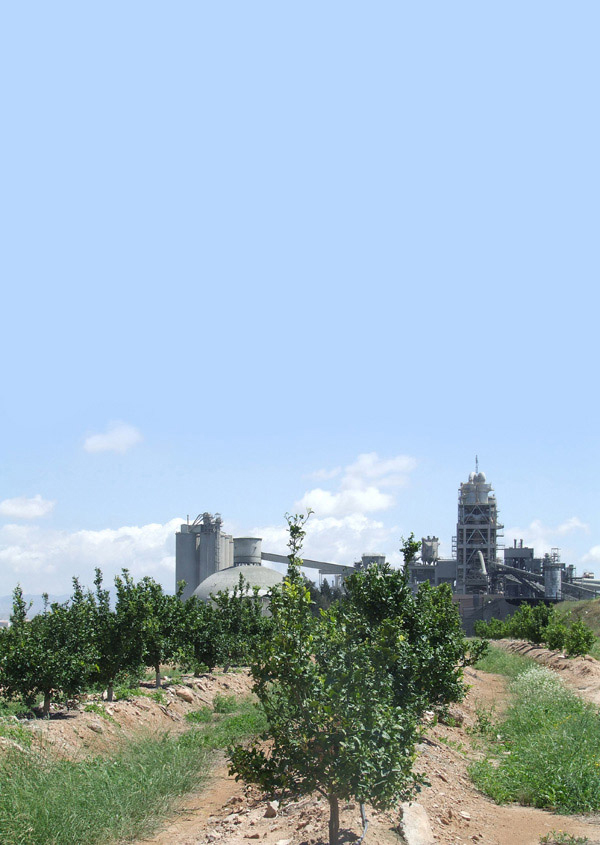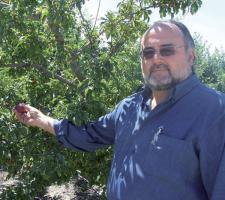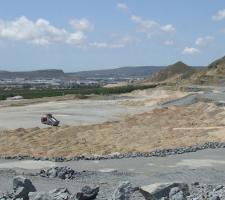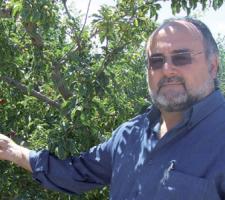
Environmental and safety accreditations are common in the aggregates industry but Cemex Spain's quarry restoration effort means it will soon boast an agricultural certification. Claire Symes visited the quarry at El Clotet to find out why
Aggregates, cement and ready mixed concrete top the list of
In addition to 1.6million tonnes of cement each year, the quarry and cement plant at El Clotet also produces over 1000tonnes of fruit grown on restored parts of the quarry. The fruit is grown for the export market in the UK, Germany, Italy, France and the US, generating revenues of around €2million each year.
"The fruit growing enterprise started in 1985, partly to try and improve the image of the plant with its neighbours but also to put the exhausted areas of the quarry to better use," said Cemex Spain agricultural section manager Rafael Sempere Fernandez. "It is now part of the strategy for the plant at El Clotet to use the plantations to create a green ring around the site." Cemex is so keen to achieve this aim that it is in the process of trying to buy an additional three plots from private land owners that it does not plan to quarry, just to plant with fruit and complete the ring.
The fruit growing efforts have now gone well beyond image improvement and the project received international recognition in the form of gaining agricultural approval. The operation has now been granted with the Global Gap standard, which is recognised by the big supermarket chains and shows that the site has reached certain environmental and employment standards.
The cement plant at the El Clotet site has been in operation for over 30 years but the company has had a presence in the area for the last 85 years. The quarry currently produces around 2million tonnes of limestone for the cement plant and for the local construction market each year and has at least another 18 years of reserves left.
The quarry around the existing site had been progressively restored but it was not until 1985 when the company started to use the land.
Planting started with pears but this wasn't a success so trials then moved onto nectarines and the orchards now include a range of soft fruit. The varieties have been carefully selected to provide fruit early in the season, which commands the highest price in the market.
The orchards now cover an area of 80ha, which is planted with over 60,000 trees and the area is being slowly extended each year.
"The rate of restoration depends on the rate of construction projects within Alicante," said Sempere. "We used material excavated from building projects within the city to backfill the exhausted quarry, which puts the material to good use and stops it being sent to landfill. The construction boom there in recent years has allowed restoration to progress quickly but the construction market is slowing so the rate of restoration may be slower over the next few years." Material brought into the site is backfilled and compacted in benches until the land reaches the original level and is then topped with richer top soils ready for planting.
"We are about to start planting in the latest restored area," said Sempere. "The area will be planted with mandarins but it will be three years before the trees will bear fruit for sale." As well as recycling excavated material, the site also recycles water from the city for irrigating the fruit. Dotted throughout the site are reservoirs to store the water. But before it is delivered to each of the trees through the fully automated irrigation plant, the water is filtered, additives are put into the water to control the PH and different fertilisers are added depending on which fruit the water is destined for. The irrigation system is split into distinct sections so that the watering can be carefully controlled.
All the fruit at the site is picked and packed by hand by a team of 60 to 70 seasonal workers for onward shipment to supermarkets in Europe and the US.
"The fruit is carefully checked before picking starts and the stage of ripeness at which the fruit is picked depends on where the fruit is going," said Sempere. "Fruit destined for the UK is usually picked just before it fully ripens to give it a longer shelf life but other European countries like their fruit to be sweeter straight from the shelf." Sempere is clearly passionate about Cemex's agricultural business but it is not something he planned for in his career when he left education. He originally worked as an accountant in the cement plant but became involved in the fruit growing restoration plan in the early stages and has been involved ever since. "Although where I work today is in sight of the cement plant where I used to work, it is a world away," he said. He has undertaken continual training to help him learn the agricultural processes and is currently studying for a Masters degree in landscape at Valencia Polytechnic.
Sempere has also been instrumental in transferring this approach to restoration to other Cemex sites and has helped establish fruit plantations in Egypt and Almeria. He has also been involved in establishing a vineyard at Torres which produces a Cemex branded wine - Cantera Vino.
His latest development is a new fruit growing enterprise in Majorca but he is also focused on expanding the restoration at El Clotet. Today around 80ha is planted with fruit trees and this will expand by another 20ha over the next few years with several new areas planted up this summer.

















